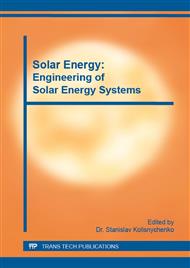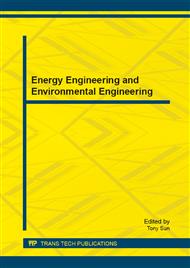p.17
p.23
p.28
p.32
p.36
p.40
p.44
p.49
p.53
Exergy Analysis of Solar Energy Systems for Sustainable Buildings
Abstract:
Exergy analysis has been widely applied in parallel with energy analysis in order to find the most rational use of energy. Low exergy systems are defined as heating or cooling systems that allow the use of low valued energy, which is mostly delivered by solar energy (i.e., solar collectors, hybrid PV/T panel) as the energy source. Low exergy building systems create more flexibility and generate new possibilities for the design of sustainable buildings. Usage of solar energy in different kinds of systems provides scope for several studies on exergy analysis. The present study comprehensively reviews the studies conducted on the exergy analysis of various solar energy systems for establishing the sustainable buildings. Conclusions regarding the usability of the exergy method as a tool to promote a more efficient use of solar energy sources are derived, with the aim to highlight future research issues and promote further developments of this method.
Info:
Periodical:
Pages:
36-39
Citation:
Online since:
April 2013
Authors:
Keywords:
Price:
Сopyright:
© 2013 Trans Tech Publications Ltd. All Rights Reserved
Share:
Citation:



